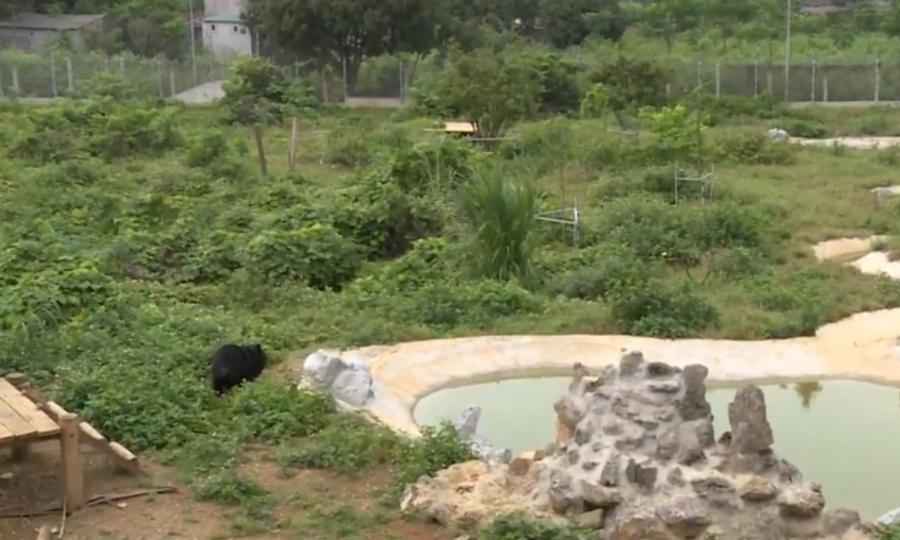
Rescued 'bile bears' find sanctuary in Vietnam
The new bear sanctuary was inaugurated in March by Four Paws, an international animal welfare organization, in the Ky Chu Commune in Nho Quan, Ninh Binh, Viet Nam News reported. Ninh Binh is just south of the capital Hanoi.
As of now, the first phase of the project, covering 3.6 hectares of land, has been completed. Some 15 ‘bile bears' and two others that were saved from the illegal wildlife life trade are currently being cared for at the center.
The facility includes an isolation area, two bear houses, a veterinary clinic and four semi-wild areas. But by the end of this year the center will be able to house more than 70 bears.
The director of Four Paws said Vietnam is home to two kinds of bears – sun bears and the Asian black bear, both of which are being threatened by the loss of their habitat as well as illegal hunting.
On weekdays, the sanctuary is open free for visitors. The authorities have plans to turn the sanctuary into a tourist site and help raise awareness about the bears' plight.
Bear bile farmsHundreds of bear farms sprouted in Vietnam in the 1990s in response to strong demand for the brownish-yellow liquid in their gall bladders, which was extracted via catheters for use in Asian traditional medicine to treat liver and kidney disease.
But publicity about the cruel practice – and raids instigated by animal welfare groups – helped reduce demand for bear bile and the profitability of such operations.
In 2005, bile extraction was made illegal, but bear farms persist in the country, due to a loophole that allowed people to keep the bears they already had.
The number of bear farms is estimated to have fallen from around 4,500 in 2005 to about a quarter of that over the next decade – 1,200 in 2015.
But the decline in consumer interest also led to concern about the welfare of bears, according to a report by Mongabay , with claims that farmers have been spending very little on food for captive bears in recent times.
Researchers also learned that some owners were killing bears – in some cases starving them to death – to sell their body parts, after they reached eight years of age, which is about a third of how long they live in the wild.
Some bears held in captivity for long periods were no longer seen to be as productive as bears caught in the wild, partly because of poor food or high rates of bile extraction.
So, grave risks persist for bears living in forests in Vietnam and neighboring countries.

Legal Disclaimer:
MENAFN provides the
information “as is” without warranty of any kind. We do not accept
any responsibility or liability for the accuracy, content, images,
videos, licenses, completeness, legality, or reliability of the information
contained in this article. If you have any complaints or copyright
issues related to this article, kindly contact the provider above.
















Comments
No comment